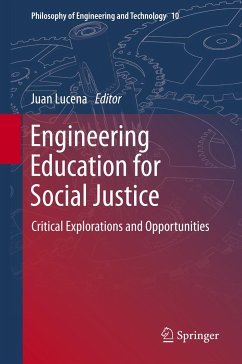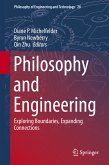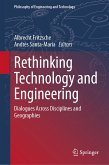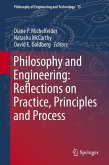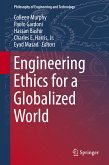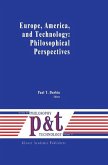This book aims to serve as a framework for interventions or strategies to make social justice more visible in engineering education and enhance scholarship in the emerging field of Engineering and Social Justice (ESJ). This creates a 'toolbox' for engineering educators and students to make social justice a central theme in engineering education.
Dieser Download kann aus rechtlichen Gründen nur mit Rechnungsadresse in A, B, BG, CY, CZ, D, DK, EW, E, FIN, F, GR, HR, H, IRL, I, LT, L, LR, M, NL, PL, P, R, S, SLO, SK ausgeliefert werden.

